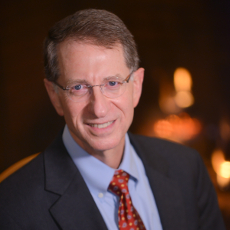 Maybe I lead a boring life, but I do look forward to the Medscape surveys on different aspects of US physicians’ lives. The latest is entitled Medscape Physician Lifestyle & Happiness Report 2018.
Maybe I lead a boring life, but I do look forward to the Medscape surveys on different aspects of US physicians’ lives. The latest is entitled Medscape Physician Lifestyle & Happiness Report 2018.
This survey queried 15,543 practicing physicians from 29 specialties from July 19 through Oct. 2, 2017. Unlike many other physician surveys, it does include allergists/immunologists, who made up 1% of the physicians surveyed.
The first question was very enlightening, as physicians were asked if they were happy outside of work. Fifty percent were extremely happy or very happy, with another 26% somewhat happy outside of work. Only 10% were very unhappy or extremely unhappy.
I found these results quite comforting. The next question was which specialty is the happiest outside of work? Can you guess which one? Would you believe allergy/immunology? Well, that’s what the results showed. There was a tie between dermatology, emergency medicine, and ophthalmology as the next happiest. Who were the least happy: oncology, public health/preventive medicine, and cardiology.
So, what does this imply about allergists? Maybe it suggests that allergists’ happiness spills over from professional to personal life and vice versa.
Another interesting question had physicians grade their own introversion or extroversion. Over a third (38%) came down in the middle or leaned toward introversion (35%), while just over a quarter (28%) veered toward being more extroverted.
Where did allergists fall? Are you primarily shy, enjoying time to yourself or more of an outgoing, talkative allergist? According to the results from the Medscape survey, allergists fall under the introvert personality. I don’t know about that one; maybe it is because we are more cerebral. Not surprising, the specialties with the highest extrovert ratings were all surgical, general surgery, urology and ob/gyn.
Another question I found intriguing was “What cars do physicians drive?” They could choose as many cars as applied. Can you guess? Was it BMW, Mercedes Benz or Audi? Nope, it was Toyota and it wasn’t even close. In fact, the top two were Japanese car companies: Toyota was 21% and Honda 16%. What were the least driven? Cadillac, Kia and Lincoln.
When evaluated between primary care physicians and specialists, more primary care doctors drove Toyotas and Hondas compared to specialists, while specialists drove more BMWs, Lexus, Mercedes Benz and Audis. I could make some comments but since I myself drive a 13-year-old Lexus, I think I will pass.
What I will comment on is the questions and results regarding the numbers of close friends that physicians say they have. We know the issues related to increased physician burnout and how important having close friends is for our own personal well-being.
First question, “Do physicians have many close friends?” The most common answer was one to three close friends at 47% and four to six close friends at 34%. Fifteen percent reported seven or more.
Which physicians by specialty say they have three or fewer close friends? It was pathology at 58%, followed by critical medicine, and radiology. Now which specialty has the highest, meaning they have more than three close friends? Can you guess? I thought it would be pediatrics, but I was mistaken. It was allergy/immunology. Yes, it’s our specialty.
Friendships are vital for support and to protect against stress. The philosopher Aristotle said, “In poverty and other misfortunes of life, true friends are a sure refuge. They keep the young out of mischief; they comfort and aid the old in their weakness, and they incite those in the prime of life to noble deeds.”
Recently I heard that the number of residents applying for allergy/immunology fellowships in the U.S. is decreasing. I am sure there are several factors, including the fact that many medical schools lack allergists, and therefore residents may have no exposure to what we do.
I wish all residents could see some of the results of this survey, as it demonstrates what we already know. Allergy is a great specialty with a strong work/life balance.
Michael Blaiss, MD, FACAAI, Executive Medical Director
